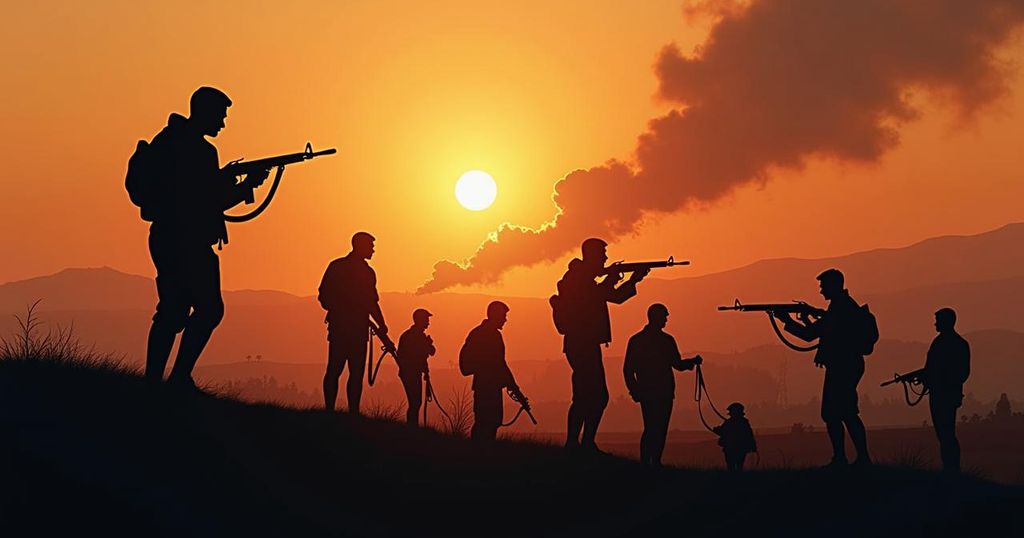Today’s news reports on significant humanitarian crises in Lebanon, the Occupied Palestinian Territory, Israel, Syria, Haiti, Ukraine, and Eastern Africa, noting rising civilian casualties and displacement, particularly due to ongoing conflicts and violence. Immediate international aid and support are critical to address these challenges effectively.
Today’s global headlines underscore a series of humanitarian crises unfolding in Lebanon, the Occupied Palestinian Territory and Israel, Syria, Haiti, Ukraine, and Eastern Africa, each presenting distinct challenges but highlighting a concerning trend of escalating violence and displacement affecting millions. In Lebanon, ongoing hostilities have resulted in severe consequences for civilians and health infrastructure, with reports indicating approximately 1,700 fatalities and more than 9,000 injuries since early October 2023. Displacement has surged, with over 346,000 individuals uprooted and shelters reaching maximum capacity. An exodus to Cyprus has seen over 300,000 people flee, raising alarms about the regional impact of the strife. In the Occupied Palestinian Territory, violence continues to escalate in the West Bank, resulting in civilian fatalities in both Israel and Palestinian territories. OCHA reports indicate that since October 7, at least 697 Palestinians and 23 Israelis have been killed amid rising tensions. Meanwhile, in Gaza, emergency response efforts are hampered by supply shortages and infrastructural damage due to persistent hostilities. Syria faces continued turmoil with airstrikes resulting in civilian casualties and humanitarian disruptions. The UN has noted intensified attacks near UN premises and humanitarian teams working to aid displaced families. In Idleb, shelling has displaced hundreds of families, compounding the already dire humanitarian situation. In Haiti, gang violence has led to over 700,000 individuals being internally displaced, with children constituting a significant proportion of those affected. Access to education has been severely obstructed, prompting UNICEF’s intervention through the ‘Back to Learning’ campaign. Ukraine remains embroiled in conflict, particularly in areas like Kherson City and Zaporizhzhia, where attacks have resulted in numerous civilian injuries and fatalities. Humanitarian partners are providing essential support but continue to face challenges amid ongoing hostilities. Eastern Africa is experiencing one of the world’s gravest humanitarian crises with nearly 67 million individuals in need of assistance. This situation has been exacerbated by climate change, conflicts, and disease outbreaks, where only a fraction of the necessary funding is available to alleviate the suffering. These scenarios collectively demand urgent international attention and action to address the need for humanitarian assistance, protection of civilians, and restoration of peace in the affected regions.
The article presents a detailed overview of multiple humanitarian crises around the world, specifically focusing on the severe socio-political and economic challenges faced by Lebanon, the Occupied Palestinian Territory and Israel, Syria, Haiti, Ukraine, and Eastern Africa. Each region is characterized by rising violence, significant civilian casualties, and large-scale displacement, necessitating immediate and decisive humanitarian action from the international community. The alarming statistics reveal an urgent need for financial support and intervention to address the rapidly deteriorating conditions affecting millions of vulnerable individuals globally.
In conclusion, the juxtaposition of crises from Lebanon to Eastern Africa illustrates the pressing need for humanitarian intervention and support across these diverse regions. The reports highlight the urgent circumstances surrounding displacement, civilian casualties, and deteriorating access to essential services amid ongoing conflicts. The international community is called upon to respond swiftly to these challenges to alleviate suffering and promote recovery.
Original Source: www.unocha.org







